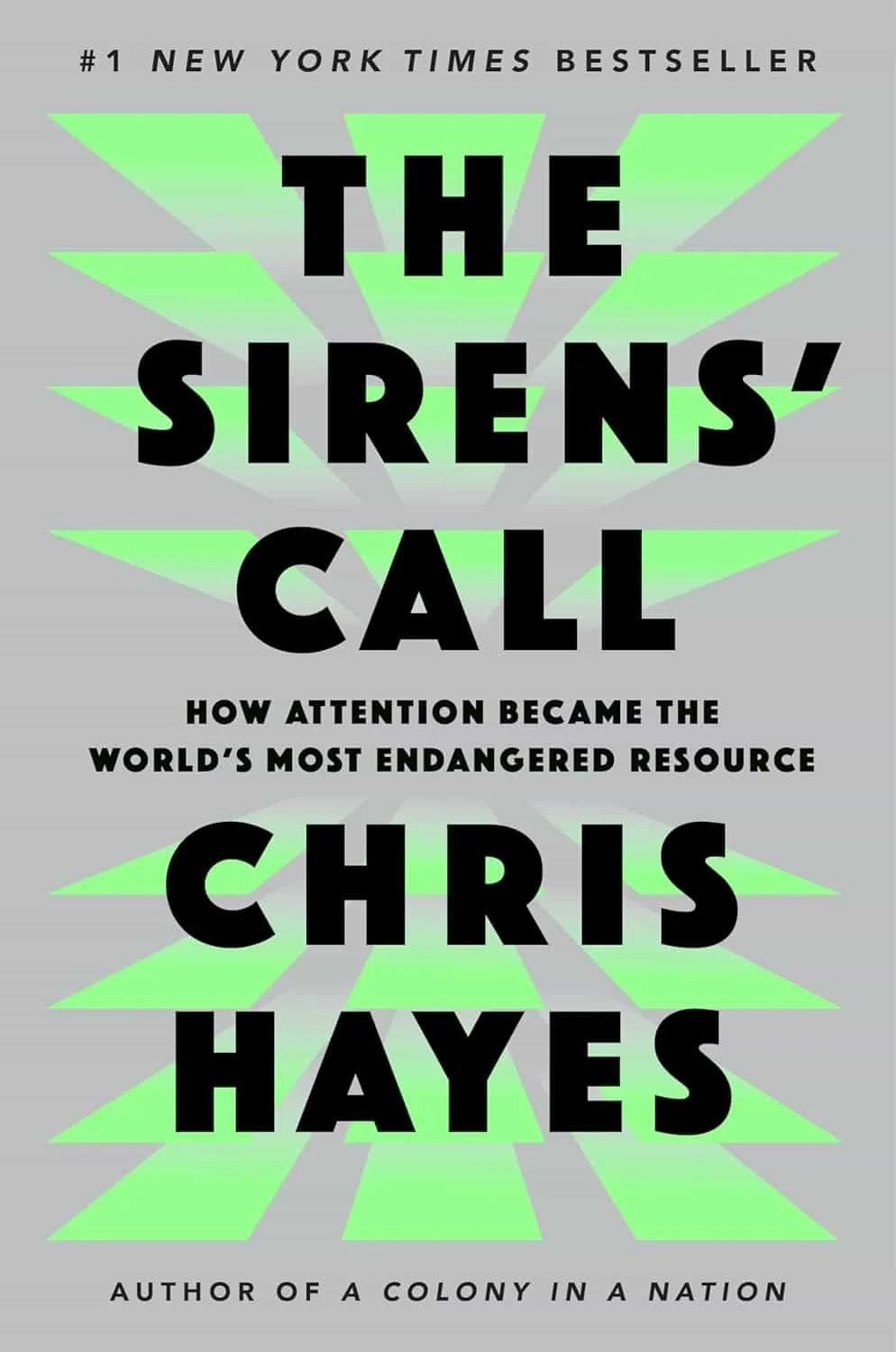
I recently caught an episode of Marc Maron’s podcast where he discussed Chris Hayes’ new book, The Sirens’ Call, a work that dissects how digital platforms have fundamentally rewired our cognition, behavior, and societal structures. Aptly titled, the book explores the unprecedented power of algorithmically amplified content and its role in reshaping everything—from our habits to the very mechanisms of governance.
The Sirens of lore and the sirens of the urban streetscape both compel our attention against our will. And that experience, having our mind captured by that intrusive wail, is now our permanent state, our lot in life. We are never free of the sirens’ call.
We now exist in an ecosystem where information is no longer a neutral entity but a weaponized force, molded by those with the most strategic—and often self-serving—intentions. Have we crossed a point of no return? The symptoms are all around us: the fractured attention spans, the compulsive doomscrolling, the algorithm-driven rabbit holes designed to keep us engaged, not informed. We navigate sidewalks dodging screen-entranced pedestrians, only to realize we’ve become them. We judge the table of four at a restaurant, each locked into their digital feed—until the phantom buzz in our own pockets pulls us back into the same endless loop.
The Sirens’ Call explores the unsettling reality of our hyper-digital age, where families that once gathered around the same shared experiences now exist in fragmented, algorithmically curated realities—each person living in their personalized version of the world, shaped by invisible forces. The traditional bonds that once connected us—dinnertime conversations, collective news consumption, shared cultural moments—have been replaced by isolated digital spheres, each tailored to reinforce individual biases and preferences.
Something fundamental has shifted. As Hayes points out, for most of human history, there was at least a theoretical boundary between public and private. But in less than a decade, a handful of tech giants demolished that barrier, replacing it with an always-on, hyper-connected reality where our every thought, preference, and impulse is tracked, analyzed, and monetized. Hayes argues that this moment is as transformative as the Industrial Revolution—but instead of exploiting labor, the new economy extracts attention, repackaging human focus as a tradable commodity. We are no longer simply consumers of content; we are the raw material being mined.
This splintering has driven society into an era of extreme polarization, where truth itself is no longer a fixed point but a fluid concept, reshaped and distorted by the forces that control our information flows. What was once an objective reality has now become a battlefield of competing narratives, each engineered for maximum engagement rather than accuracy. The hierarchy of credibility has inverted: the loudest, most inflammatory voices—often the so-called “bottom feeders” lurking in comment sections—have risen to prominence, hijacking the medium itself. Where expertise and measured discourse once defined public debate, outrage, misinformation, and virality now dictate what rises to the surface.
But systems built on extraction eventually reach a breaking point. The sirens calling to us are no longer mythical; they are embedded in the very fabric of our daily lives—our bedrooms, our kitchens, our workplaces—designed with precision to hijack human psychology. The most powerful corporations in history have been built on the premise of capturing and monetizing our cognitive bandwidth, using machine learning, behavioral prediction models, and neurocognitive hacking to keep us engaged far beyond our best interests. As Hayes chillingly observes, “Now our deepest neurological structures, human evolutionary inheritances, and social impulses are in a habitat designed to prey upon, to cultivate, distort, or destroy that which most fundamentally makes us human.”
In this new digital ecosystem, the algorithms do not simply reflect our world—they actively construct it, shaping perception in ways that are often imperceptible yet profoundly consequential. The social fabric that once held communities together is now being frayed by an infrastructure designed to reward division, extremism, and the monetization of conflict. The Sirens’ Call makes it clear: we are not just consuming content—we are being reshaped by it. The question now is whether we can recognize the manipulation before it becomes irreversible.
The sirens are calling, and though you might believe it’s as simple as silencing a notification or putting your phone down, the reality is far more insidious. Carrying a smartphone isn’t just a convenience—it makes you a beacon, constantly transmitting and receiving the signals of an algorithmic system designed to captivate, manipulate, and monetize your attention. Disconnection is no longer just a choice; it’s an uphill battle against a digital environment engineered for addiction.
The older generations—those who remember a time before the internet dictated every aspect of daily life—are fading away. Meanwhile, the younger generations, raised in a world where constant connectivity is the norm, are marching forward, tethered to their screens, heeding the call of the great algorithm. What was once a tool for communication has become a mechanism of control—one that few recognize and even fewer resist.
This is more than just an evolution in technology—it’s a fundamental shift in how we experience and engage with the world. The sirens’ call isn’t about entertainment or enlightenment; it’s a carefully engineered pull into a system designed to capture and hold our attention. Every ping, every vibration, every notification is a summons, drawing us further into a digital landscape where focus is fragmented, and distraction is the default.
The Sirens’ Call doesn’t just diagnose the problem—it offers a crucial, panoramic view of how we got here and what we must do next. It forces us to ask: What happens when an entire civilization is built around the relentless monetization of distraction? And more urgently—how do we reclaim our autonomy before it’s too late?
Discover more from Sandbox World
Subscribe to get the latest posts sent to your email.